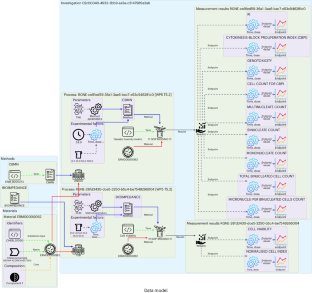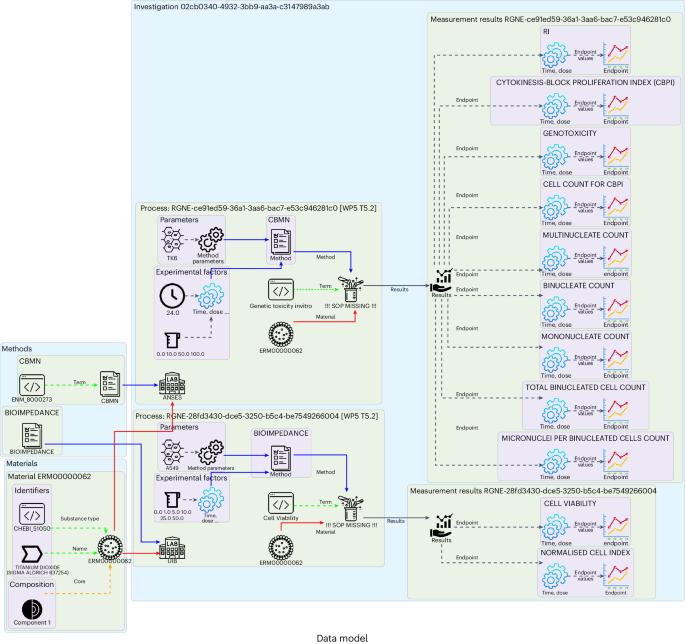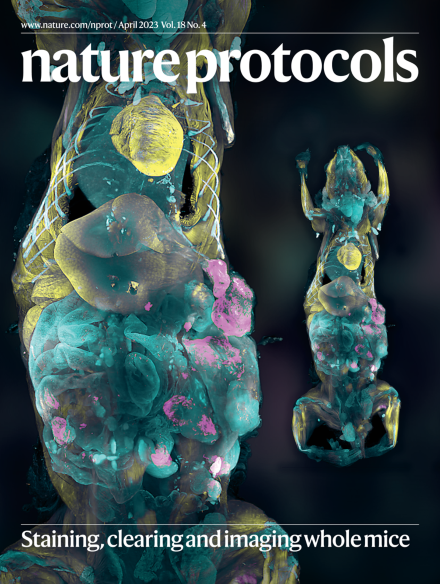A template wizard for the cocreation of machine-readable data-reporting to harmonize the evaluation of (nano)materials
IF 13.1
1区 生物学
Q1 BIOCHEMICAL RESEARCH METHODS
引用次数: 0
Abstract
Making research data findable, accessible, interoperable and reusable (FAIR) is typically hampered by a lack of skills in technical aspects of data management by data generators and a lack of resources. We developed a Template Wizard for researchers to easily create templates suitable for consistently capturing data and metadata from their experiments. The templates are easy to use and enable the compilation of machine-readable metadata to accompany data generation and align them to existing community standards and databases, such as eNanoMapper, streamlining the adoption of the FAIR principles. These templates are citable objects and are available as online tools. The Template Wizard is designed to be user friendly and facilitates using and reusing existing templates for new projects or project extensions. The wizard is accompanied by an online template validator, which allows self-evaluation of the template (to ensure mapping to the data schema and machine readability of the captured data) and transformation by an open-source parser into machine-readable formats, compliant with the FAIR principles. The templates are based on extensive collective experience in nanosafety data collection and include over 60 harmonized data entry templates for physicochemical characterization and hazard assessment (cell viability, genotoxicity, environmental organism dose-response tests, omics), as well as exposure and release studies. The templates are generalizable across fields and have already been extended and adapted for microplastics and advanced materials research. The harmonized templates improve the reliability of interlaboratory comparisons, data reuse and meta-analyses and can facilitate the safety evaluation and regulation process for (nano) materials. Community-generated online templates for harmonized data reporting ensure that data and metadata associated with experiments are findable, accessible, interoperable, reusable and compiled for consistency in experimental design and test performance.


用于共同创建机器可读数据报告的模板向导,以协调(纳米)材料的评估。
使研究数据可查找、可访问、可互操作和可重用(FAIR)通常受到数据生成者缺乏数据管理技术方面的技能和资源的阻碍。我们为研究人员开发了一个模板向导,方便他们创建适合从实验中持续捕获数据和元数据的模板。这些模板易于使用,能够编制机器可读的元数据,用于数据生成,并与现有的社区标准和数据库(如 eNanoMapper)保持一致,从而简化 FAIR 原则的采用。这些模板是可引用的对象,可作为在线工具使用。模板向导的设计对用户友好,便于在新项目或项目扩展中使用和重复使用现有模板。该向导还配有一个在线模板验证器,可对模板进行自我评估(以确保与数据模式的映射以及采集数据的机器可读性),并通过开源解析器转换为符合 FAIR 原则的机器可读格式。这些模板以纳米安全数据收集方面的广泛集体经验为基础,包括 60 多个统一的数据录入模板,用于物理化学表征和危害评估(细胞活力、遗传毒性、环境生物剂量反应测试、omics)以及暴露和释放研究。这些模板具有跨领域通用性,并已针对微塑料和先进材料研究进行了扩展和调整。统一模板提高了实验室间比较、数据再利用和荟萃分析的可靠性,可促进(纳米)材料的安全评估和监管过程。
本文章由计算机程序翻译,如有差异,请以英文原文为准。
求助全文
约1分钟内获得全文
求助全文
来源期刊

Nature Protocols
生物-生化研究方法
CiteScore
29.10
自引率
0.70%
发文量
128
审稿时长
4 months
期刊介绍:
Nature Protocols focuses on publishing protocols used to address significant biological and biomedical science research questions, including methods grounded in physics and chemistry with practical applications to biological problems. The journal caters to a primary audience of research scientists and, as such, exclusively publishes protocols with research applications. Protocols primarily aimed at influencing patient management and treatment decisions are not featured.
The specific techniques covered encompass a wide range, including but not limited to: Biochemistry, Cell biology, Cell culture, Chemical modification, Computational biology, Developmental biology, Epigenomics, Genetic analysis, Genetic modification, Genomics, Imaging, Immunology, Isolation, purification, and separation, Lipidomics, Metabolomics, Microbiology, Model organisms, Nanotechnology, Neuroscience, Nucleic-acid-based molecular biology, Pharmacology, Plant biology, Protein analysis, Proteomics, Spectroscopy, Structural biology, Synthetic chemistry, Tissue culture, Toxicology, and Virology.
 求助内容:
求助内容: 应助结果提醒方式:
应助结果提醒方式:


